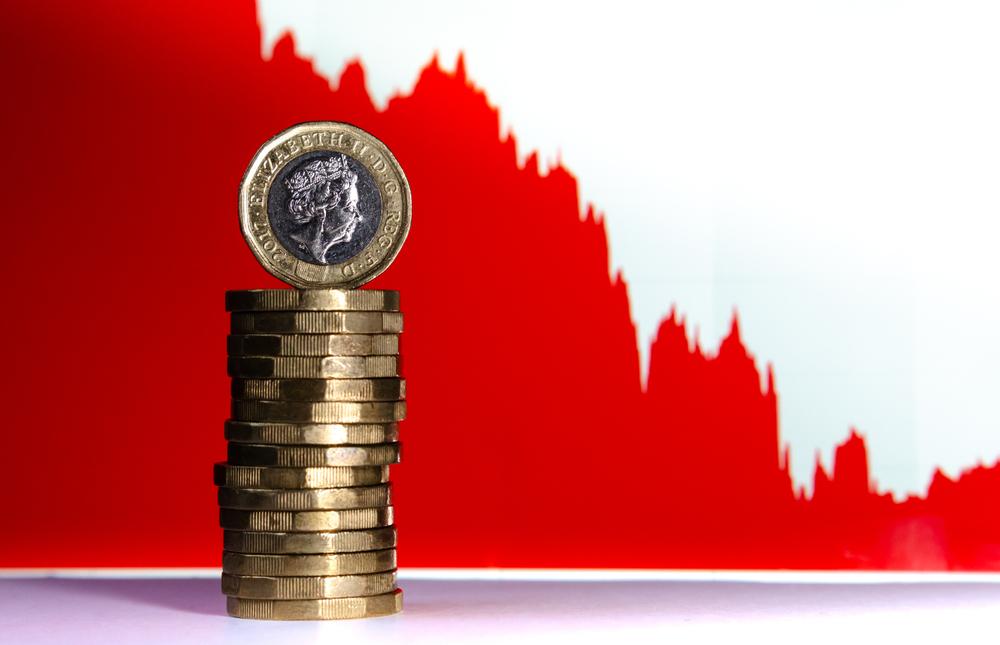On Wednesday, data collected by the Office for National Statistics (ONS) showing two quarters of consecutive GDP decline confirmed what many have been expecting since the impact of the coronavirus pandemic first struck the economy at the start of the year: the UK is officially in recession.
After a record contraction of 20.4% between April and June – the UK’s largest economic slump on record – the country nosedived into its first “technical recession” since the global financial crisis between 2008 and 2009, and the biggest quarterly decline since records began in 1955.
The ONS’s record-breaking figures were reported by The Guardian to show that the UK economy shrank “more than any other nation” during the pandemic, as the government also faces mounting criticism after it was revealed that the UK suffered the highest coronavirus death rate in Europe.
GDP only slid by 2.2% in the between January to March, but this was well before the full extent of the coronavirus pandemic had fully hit the UK, and when confirmed cases were still reportedly in the single digits. The outbreak began to wreak havoc on the economy during March, when the government imposed a nationwide lockdown and forced businesses up and down the country to close to the public.
With a comparatively late response compared to other European nations, and with lockdown relaxing at similarly later dates, the UK suffered the deepest economic decline out of all of the G7 countries – more than double the 10.6% fall seen in the US.
The ONS’s report stated that the pandemic had effectively erased 17 years of economic growth in just two quarters – forcing GDP to regress back to levels not seen since June 2003.
Even as the economy began the recovery process once businesses reopened in June, GDP still only rose by 8.7% – 17.2% below the levels recorded in February 2020.
Commenting on the expected – yet nonetheless depressing – figures, Chancellor Rishi Sunak sought to soothe fears with a message of optimism amidst criticism of the government’s handling of the crisis:
“I’ve said before that hard times were ahead and today’s figures confirm that hard times are here. Hundreds of thousands of people have already lost their jobs and, sadly, in the coming months many more will. But while there are difficult choices to be made ahead, we will get through this and I can assure people that nobody will be left without hope or opportunity”.
Financial analyst Connor Campbell stated that the ONS’s report is nonetheless evidence of the “bungling nature” of the government’s handling of the pandemic.
Shadow chancellor Anneliese Dodds pointed the finger squarely at Prime Minister Boris Johnson, saying:
“A downturn was inevitable after lockdown – but Johnson’s jobs crisis wasn’t. We’ve already got the worst excess death rate in Europe – now we’re on course for the worst recession too. That’s a tragedy for the British people and it’s happened on Boris Johnson’s watch”.
It may not be entirely doom and gloom, however, as Luke Davis (CEO of IW Capital) assured that the numbers may appear worse than they seem:
“These figures are not wholly surprising given the catastrophic impact that lockdown had on many business. The word recession in the context of previous years is normally a by-word for low confidence, but in this case that is not necessarily true. Many firms are optimistic about their prospects and want to grow. Resilience is an important part of any business and firms that have survived this period will now be looking forward to growth and opportunity”.
That being said, Twitter was rampant with criticism for the government’s approach to the pandemic.
It was never a choice between ‘lives’ and ‘the economy’. It was always a case of choosing to preserve both, by locking down tightly and early; by protecting key workers and care homes’; by developing a decent test and trace system.
On each of those issues, Boris Johnson failed. https://t.co/0mVJsil3vh— Aditya Chakrabortty (@chakrabortty) August 12, 2020
The U.K. is now officially in recession. In four and a half months, we become the first country in history to impose economic sanctions on itself. ‘World-beating’ doesn’t come close.
— James O’Brien (@mrjamesob) August 12, 2020
It is no accident that the UK has suffered both the highest excess death rate in Europe and the worst economic recession of any G7 country: the late lockdown and the spread of Covid-19 helped destroy economic confidence. https://t.co/GdDkUPBGFD
— George Eaton (@georgeeaton) August 12, 2020




